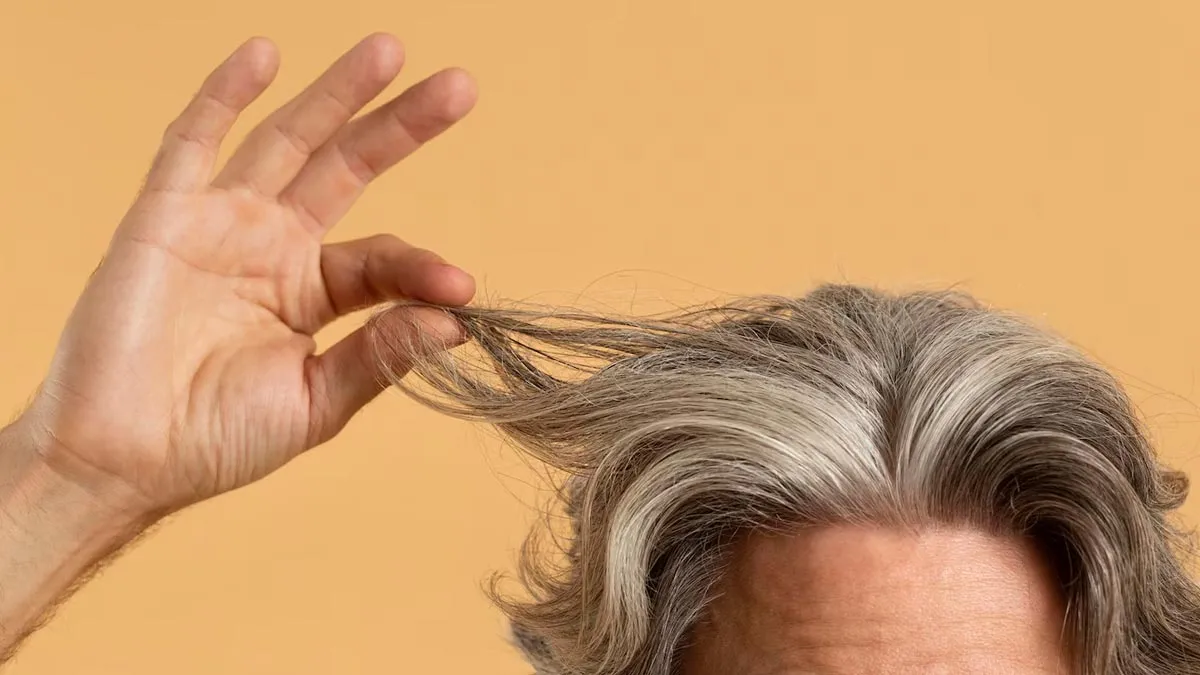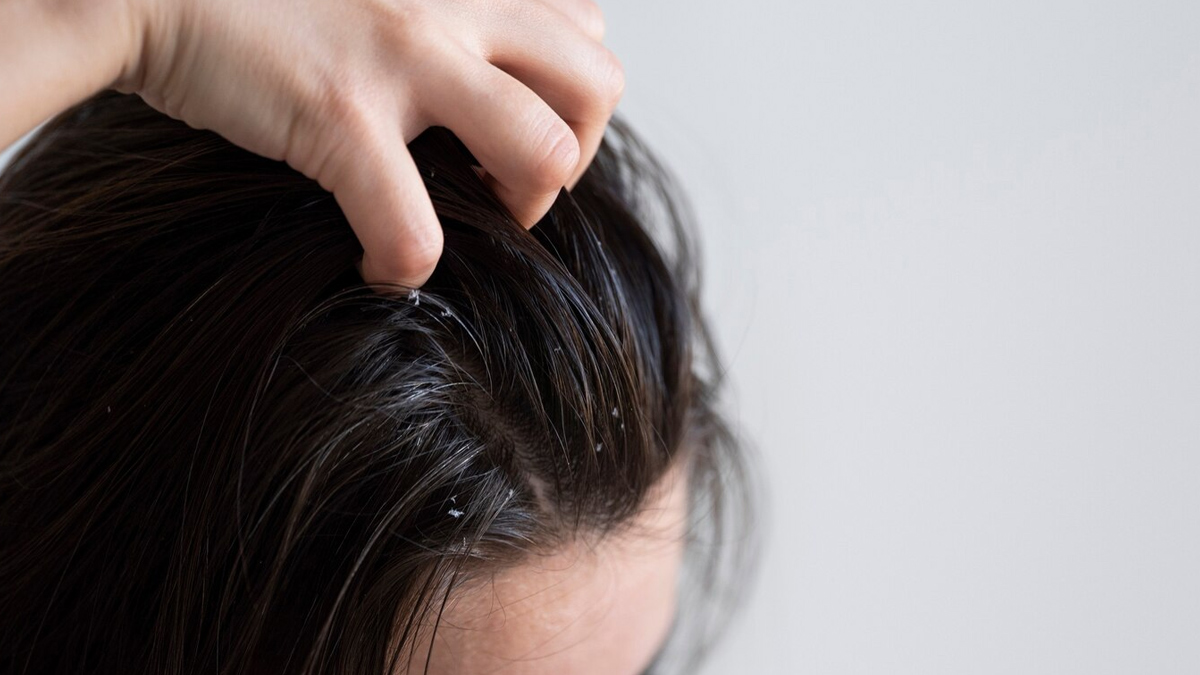
Hair is often one of the first things people notice about us and one of the first places we see signs of ageing. Just like our skin, our hair goes through its transformation over the years. Some changes are subtle, others more obvious. And while it’s completely natural, that doesn’t mean we have to accept it without a plan.
Table of Content:-
So, what exactly happens to your hair as you age, and what can you do about it? Here’s a breakdown of the 6 most common changes and the solutions that work.
Changes In Hair With Age And Their Solutions
1. Your Hair Starts Turning Grey

As we age, the pigment-producing cells in our hair follicles called melanocytes, slow down and eventually stop producing melanin, the component that gives hair its colour.
What you can do
There’s no magic pill to stop greying, but if you’re not ready to embrace the silver, hair dyes are your go-to. Try ammonia-free, nourishing formulas to reduce damage. Also, load up on antioxidants in your diet (berries, nuts, and leafy greens) to support your hair’s health from within.
2. Hair Gets Thinner
Losing 50–100 hairs daily is normal, but as you get older, your hair's natural growth cycle decelerates. That's to say, new hair doesn't grow as quickly as old hair sheds, so your mane appears thinner with time.
What you can do
Use volumising shampoos and light conditioners that do not weigh hair down. Massages on the scalp using oils, such as rosemary or castor oil can stimulate circulation and encourage healthier growth. Additionally, what you eat counts. Protein, iron, zinc, and biotin are the nutrients needed for thicker hair.
Also Read: What Does It Mean To Have Dead Hair? Expert Shares How To Fix!
3. Dryness and Dullness Increase

Older hair tends to be drier and more brittle. Part of the reason is that our scalp makes less sebum (natural oil) as we age. Subsequently, hair becomes dull, rough, and more breakable.
What you can do
Switch to hydrating shampoos and deep-conditioning masks. Search for argan oil, shea butter, or keratin as ingredients. Try to reduce heat styling, and if you cannot avoid it, always use a heat protectant spray.
4. The Texture Might Change
Your straight hair may develop a wave or your curls may begin to loosen. Changes in hormonal levels, particularly during menopause, can influence the shape and structure of your hair strands.
What you can do
If your hair texture alters, try changing your haircut or styling technique. A good stylist can help you find a style that complements your new texture.
Also Read: Can Diet and Lifestyle Actually Impact Your Hair and Skin? Dermat Weighs In
5. The Hairline May Recede
In both men and women, hair thinning at the crown or temples becomes more common with age. For women, this often shows up as a widening part, especially after menopause.
What you can do
Topical treatments like minoxidil can help slow the process. You can also try hair fibres or powders that fill in sparse areas for a fuller look instantly. And always be gentle, with no tight ponytails or aggressive brushing.
6. Scalp Health Becomes More Important

An often overlooked aspect of ageing hair is the scalp itself. A dry or flaky scalp can affect hair growth and quality. With age, your scalp may become more sensitive or prone to buildup.
What you can do
Exfoliate your scalp weekly with a mild scrub or clarifying shampoo to remove product residue and dead skin. Keep your scalp hydrated with light oils or scalp serums that nourish without clogging pores.
Ageing is natural, and so are the changes that come with it. But just like we adjust our skincare routine as we grow older, our haircare needs a little extra love too. From choosing the right products to eating well and being gentle with our strands, small changes can make a big difference. Your hair may not be what it was at 20, but with the right care, it can still be healthy, beautiful, and full of life, at every age.
[Disclaimer: This article contains information for informational purposes only. Hence, we advise you to consult your professional if you are dealing with any health issue to avoid complications.]
Also watch this video
How we keep this article up to date:
We work with experts and keep a close eye on the latest in health and wellness. Whenever there is a new research or helpful information, we update our articles with accurate and useful advice.
Current Version